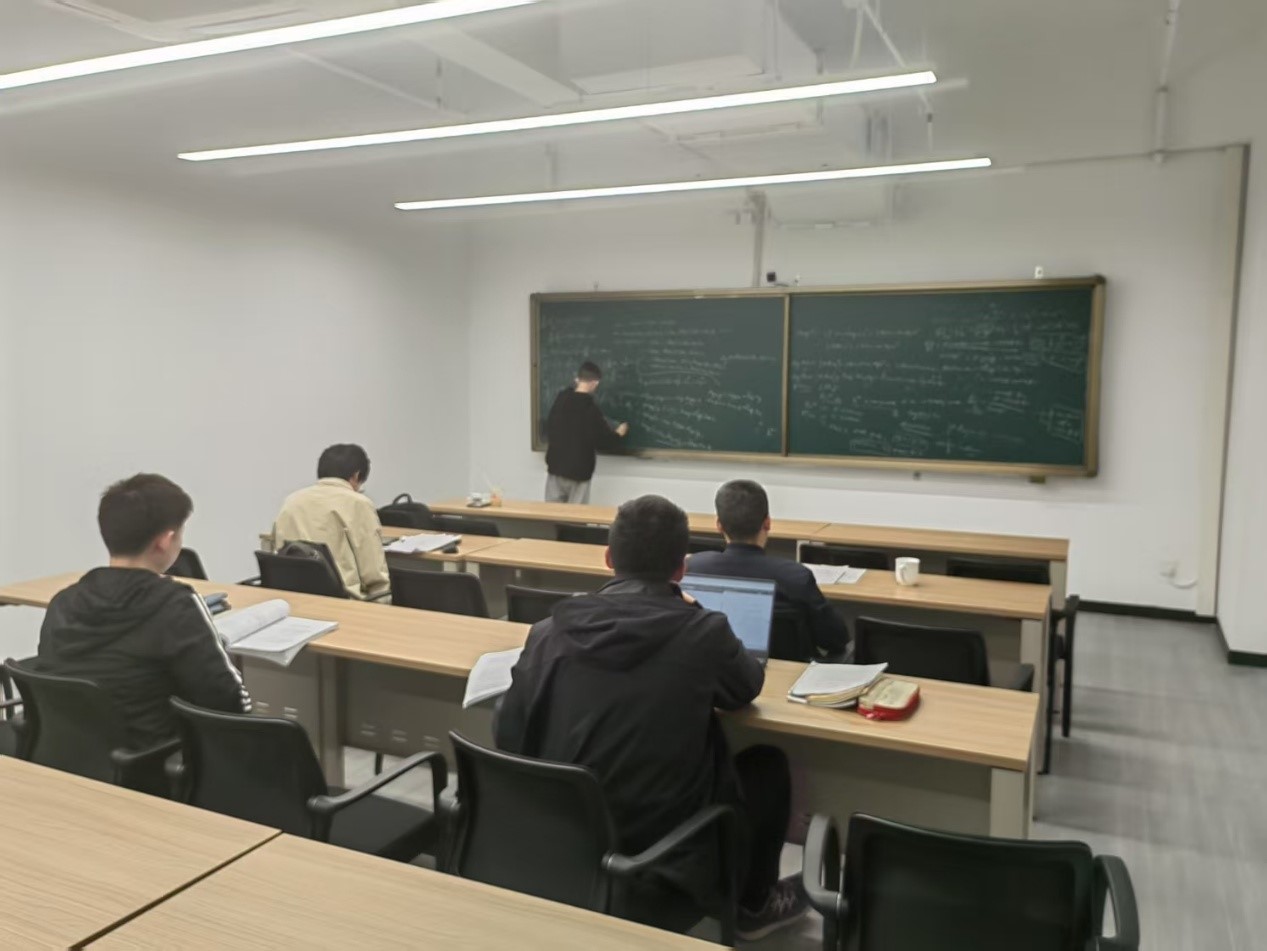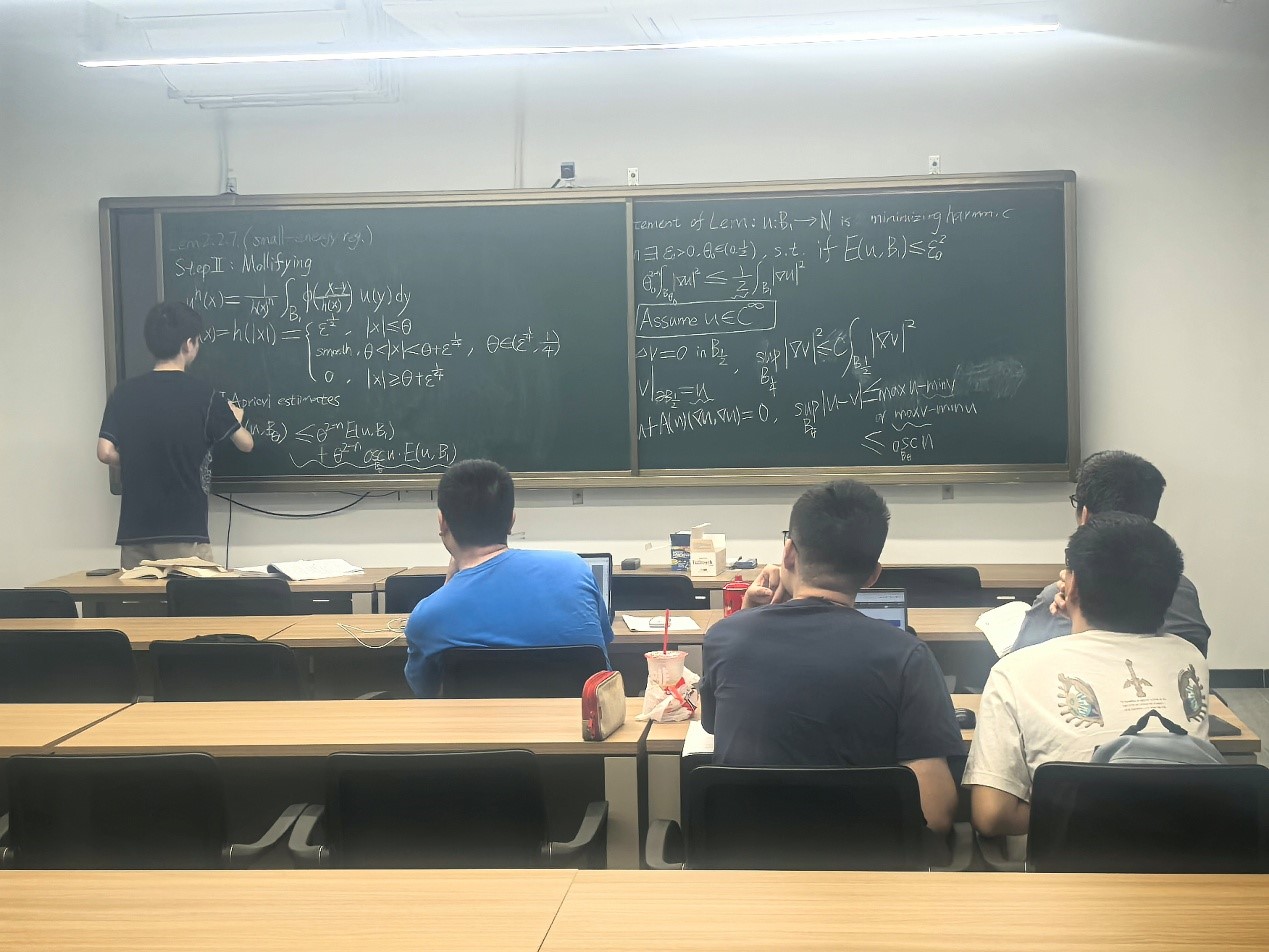This semester, to further stimulate undergraduates’ interest in scientific research and enhance their innovation capabilities, Professors Sun Jun, Zhu Anqiang, and Qiu Hongbing from the School of Mathematics and Statistics jointly hosted the “Harmonic Map Seminar.” The seminar takes Professor Lin Fanghua’s classic monograph *Harmonic Maps and Their Heat Flow* as its core text, focusing on the theory of energy-minimizing harmonic maps and their cutting-edge applications in modern geometric analysis. It has attracted the enthusiastic participation of upper-level honors students, laying a solid foundation for cultivating innovative talents with strong mathematical foundations and forward-looking academic vision.

As a central concept at the intersection of modern differential geometry and analysis, harmonic maps hold significant theoretical value and broad application prospects in fields such as mathematics and physics. Closely aligned with the frontiers of academic research, this seminar is carefully structured, emphasizing the integration of theory and practice, and fully engaging students’ initiative throughout the learning process. It has achieved remarkable teaching results.
In terms of organization, the seminar adopts an innovative format of “student-led presentations with faculty guidance.” Each session features one student as the principal speaker, who systematically reviews relevant theoretical concepts and illustrates their geometric meanings through concrete examples. Professors Sun Jun, Zhu Anqiang, and Qiu Hongbing serve as facilitators, guiding in-depth discussions, supplementing essential background knowledge, and inspiring students to transition from classical analysis to the framework of modern geometric analysis. This teaching model not only effectively strengthens students’ abilities in independent learning, logical reasoning, and oral presentation but, more importantly, fosters profound interaction between teachers and students, cultivating a vibrant academic atmosphere and sparking students’ intrinsic motivation for mathematical research.
In the first seminar, He Tinghao (Class of 2024, Mathematics Major) provided a clear and insightful introduction to the basic definitions and variational principles of harmonic maps. He thoroughly analyzed the essence of harmonic maps as critical points of the energy functional and rigorously derived the corresponding Euler–Lagrange equations. Through detailed examination of classical examples such as mappings from surfaces to spheres, He helped participants deeply understand the geometric significance of harmonic maps, laying a strong foundation for further exploration.
The second seminar was jointly presented by Zhu Rui and Chen Yiming (Class of 2022, Mathematics and Applied Mathematics, Ziqiang Class). Their talk focused on the regularity and singular set of energy-minimizing harmonic maps. They systematically studied the regularity theory of energy-minimizing harmonic maps, including smoothness in two dimensions (the classical result by Morrey in 1948) and partial regularity in higher dimensions (the Schoen–Uhlenbeck theory). They also examined dimensional estimates and compactness theorems for singular sets in general dimensions. Through in-depth study of these frontier theories, students not only mastered core research methods in harmonic map theory but also gained a deep appreciation for the distinctive appeal and vitality of modern geometric analysis.

This seminar has significantly enhanced undergraduates’ understanding of harmonic map theory. More importantly, it has effectively fostered students’ scientific literacy and their commitment to rigorous and truth-seeking research. During discussions, students engaged actively in critical thinking, questioning, and debate, fully demonstrating their academic potential and innovative spirit. At the same time, the seminar exemplifies the School’s long-standing educational philosophy of “research-driven teaching and teaching-enhanced research,” providing a valuable platform for exploring academic frontiers, inspiring research enthusiasm, and developing innovative thinking and practical skills.